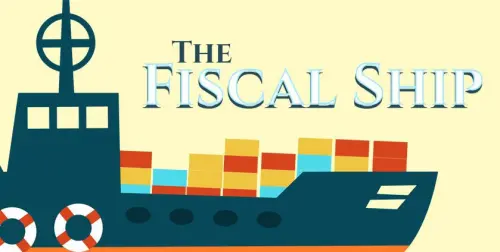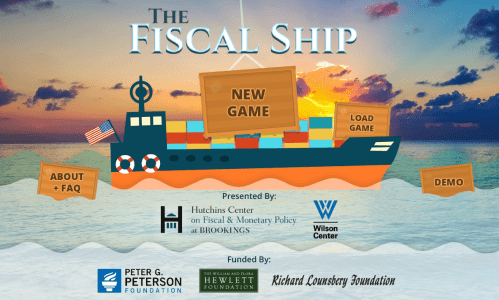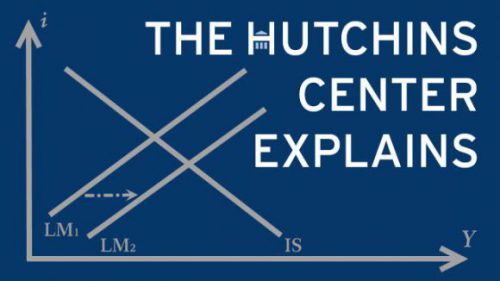In the 30 years I spent at The Wall Street Journal, I tried a lot of ways to explain dense but important fiscal, financial, or monetary policies to people who know they’re important but never get to the end of any newspaper story on the subject. One topic is always hard to explain: The federal budget. Just say the phrase and eyes glaze over.
Now I direct the Hutchins Center on Fiscal and Monetary Policy at the Brookings Institution, where many of my colleagues know, well, everything about the federal budget. They’re worried not so much about today’s budget deficit; indeed, some would borrow at today’s low interest rates to give the slow-growing U.S. economy a boost right now. Instead, they’re worried about projections that show the federal debt rising inexorably over the next couple of decades. They know that putting the budget on a sustainable path will require politically difficult decisions about spending cuts or tax increases. And they know that tax and spending decisions are about more than dollars and cents—they’re also about the kind of country we want to live in.
Without a change in spending and tax policies, rising debt over the next 25 years will put the U.S. economy and the well-being of our kids and grandkids at risk. So we wondered, how can we best get the word out?
We decided to build a computer game. It’s called “The Fiscal Ship” —and you can play it yourself at www.fiscalship.org. It’s a partnership between The Hutchins Center at Brookings and the Woodrow Wilson International Center for Scholars.
How “The Fiscal Ship” works
When you play “Fiscal Ship,” you’ll start by choosing your values. Maybe you want to reduce inequality, shrink government, or fight climate change. Your mission is to pick tax and spending policies that move the nation towards those goals.
But you’re also confronted with the latest projections that show the federal debt rising as a share of the economy over the next 25 years (to about 130% of the gross domestic product). Your mission is also to pick tax and spending policies that reduce the debt from projected levels so that by 2041 the debt is roughly where it is today, about 75% of GDP.
In short, winning the game means finding that mix of tax and spending policies that both achieve your big-picture goals for the country AND put the federal budget on sustainable trajectory.
To do that, you’ll discover how much money we’d raise by imposing a carbon tax or how much money we’d save by abolishing the Department of Education. You’ll see how small an impact some widely-discussed policies would be, and how hard it is to solve the puzzle unless you choose some options that are, at least right now, politically difficult.
If you’ve got the time, you can dig around the Internet to find budget experts who have crunched those numbers. Or, you can play “The Fiscal Ship,” choose the policies that meet your values, and see if you manage to stop the debt from rising.
Play the game yourself
So tell us how you would stop the debt from rising by playing “Fiscal Ship” and sharing your results. You can play at www.fiscalship.org.
And just for fun, here’s a short video trailer we made to get the word out: “The Fiscal Ship” might be a game, but rising federal debt isn’t. It’s a real problem that needs real solutions.
The Brookings Institution is committed to quality, independence, and impact.
We are supported by a diverse array of funders. In line with our values and policies, each Brookings publication represents the sole views of its author(s).





Commentary
Why we made a computer game about the federal budget
April 26, 2016